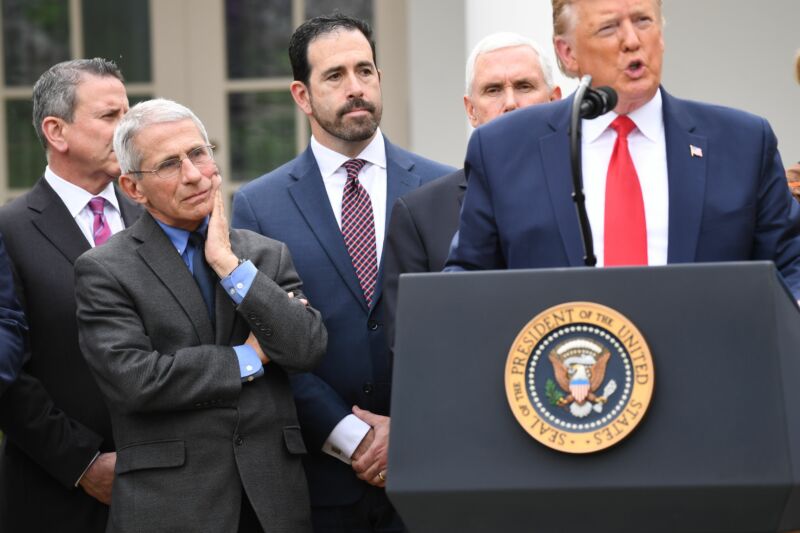
The spread of the new coronavirus within the US is a national emergency, President Donald Trump declared Friday afternoon, March 13.
The declaration provides states and territories with access to up to $50 billion in funds to address the rapidly escalating pandemic. Generally, such funding could be used for emergency medical care, food, and medicine.
As of Friday afternoon, there were over 1,600 cases across 46 states and the District of Columbia. There have been 41 deaths reported.
Trump, speaking this afternoon from the White House Rose Garden, urged every state to set up emergency operation centers to address cases. He also spoke of ramped up testing capacity and the involvement of the private sector in testing. He suggested that millions of testing kits were going to become available soon. However, he added, "We don't want everybody taking this test. It's totally unnecessary."
It's unclear how many people in the US have already been tested for the virus since the country's first case was detected in Washington state at the end of January. An investigation by The Atlantic suggests only about 14,000 people have been tested. In contrast, South Korea, which has experienced a massive outbreak and has earned praise for its responses, is reportedly testing nearly 20,000 people a day.
Public health emergency experts at the World Health Organization have stressed that in order to stop the epidemic, countries should rigorously screen and test for cases, isolate the infected, and trace and quarantine their contacts.
"We still have a long way to go," Dr. Anthony Fauci said during the announcement in the Rose Garden. Fauci, director of the National Institute of Allergy and Infectious Diseases at the National Institutes of Health, said that today's declaration will help lessen the impact of the pandemic.
As NPR notes, today's emergency funding will be in addition to an $8.3 billion provided in an emergency spending bill Trump signed on March 6.